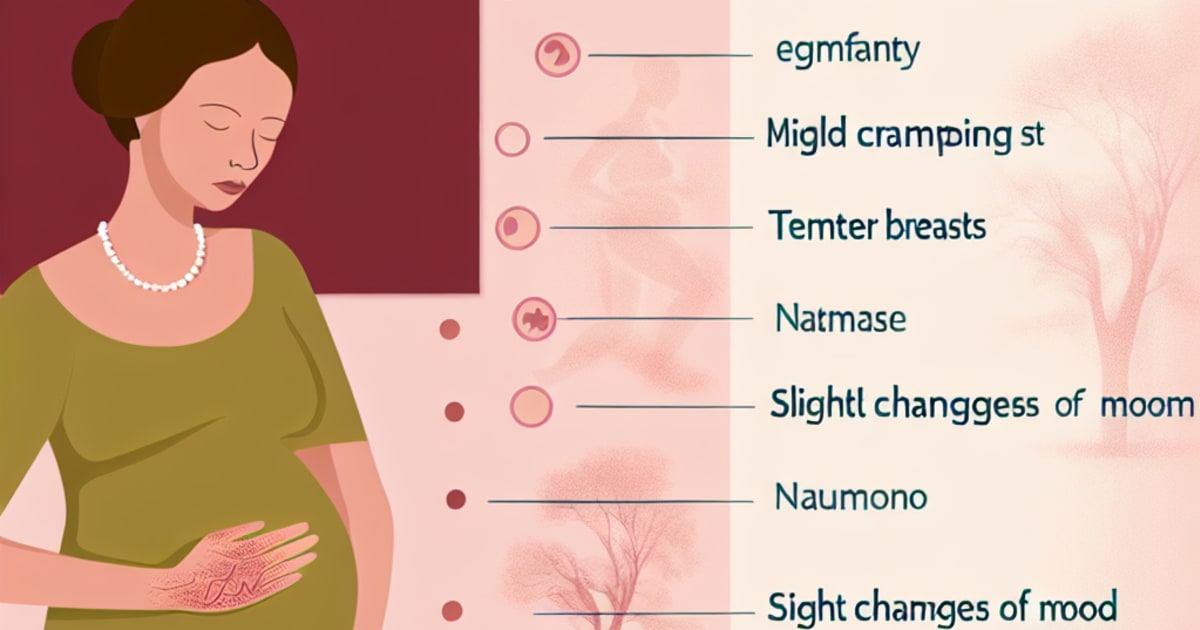
Early Pregnancy Symptoms - Understanding the First Signs
Introduction
Pregnancy is a beautiful journey that brings a new life into the world. However, it is also a time of significant physical and emotional changes for the expecting mother. The first sign of pregnancy is often a missed period, but even before that, a woman may notice symptoms that suggest she might be pregnant. These early pregnancy symptoms can appear within the first few weeks after conception and can vary from woman to woman. This blog post will delve into the various early pregnancy symptoms that you might experience.
Understanding Early Pregnancy Symptoms
Early pregnancy symptoms are often similar to the symptoms you might experience right before and during menstruation, making them not immediately noticeable. The only way to confirm pregnancy is through a pregnancy test or ultrasound, but there are some early signs that can give you a hint.
Common Early Pregnancy Symptoms
Missed Period
The most common and clear-cut sign of pregnancy is a missed period. If you're usually regular and you've missed your period, it's often the first sign that you might be pregnant. However, a missed period doesn't always mean you're pregnant, as stress or changes in weight can also cause irregularities in your menstrual cycle.
Tender, Swollen Breasts
One of the earliest signs of pregnancy is changes in the breasts. They can become tender, sore, or swollen as early as one to two weeks after conception due to hormonal changes.
Fatigue
Feeling tired or fatigued is another early pregnancy symptom. This can start as early as the first week after conception. This is because during early pregnancy, levels of the hormone progesterone soar, which can put you to sleep.
Nausea (Morning Sickness)
Despite the name, morning sickness can strike at any time of the day or night. For some women, it might be the first sign of pregnancy. Nausea seems to stem at least in part from rapidly rising levels of estrogen and progesterone, which cause the stomach to empty more slowly.
Increased Urination
You might find yourself urinating more often than usual. The amount of blood in your body increases during pregnancy, causing your kidneys to process extra fluid that ends up in your bladder.
Cravings or Aversions to Certain Foods
Certain foods may suddenly repulse you. You might become very sensitive to certain smells and your sense of taste might change. Like most other symptoms of pregnancy, these food preferences can be chalked up to hormonal changes.
Conclusion
While these symptoms can suggest pregnancy, they are not definitive. The only way to know for sure if you're pregnant is to take a pregnancy test. If you think you might be pregnant and are experiencing some of these symptoms, it's important to take a home pregnancy test or consult with a healthcare provider as soon as possible. Remember, every woman and every pregnancy is unique, so you may not experience all these symptoms, or you may notice other changes. Pregnancy is a wonderful journey, and understanding the early signs can help you prepare for the exciting times ahead.
